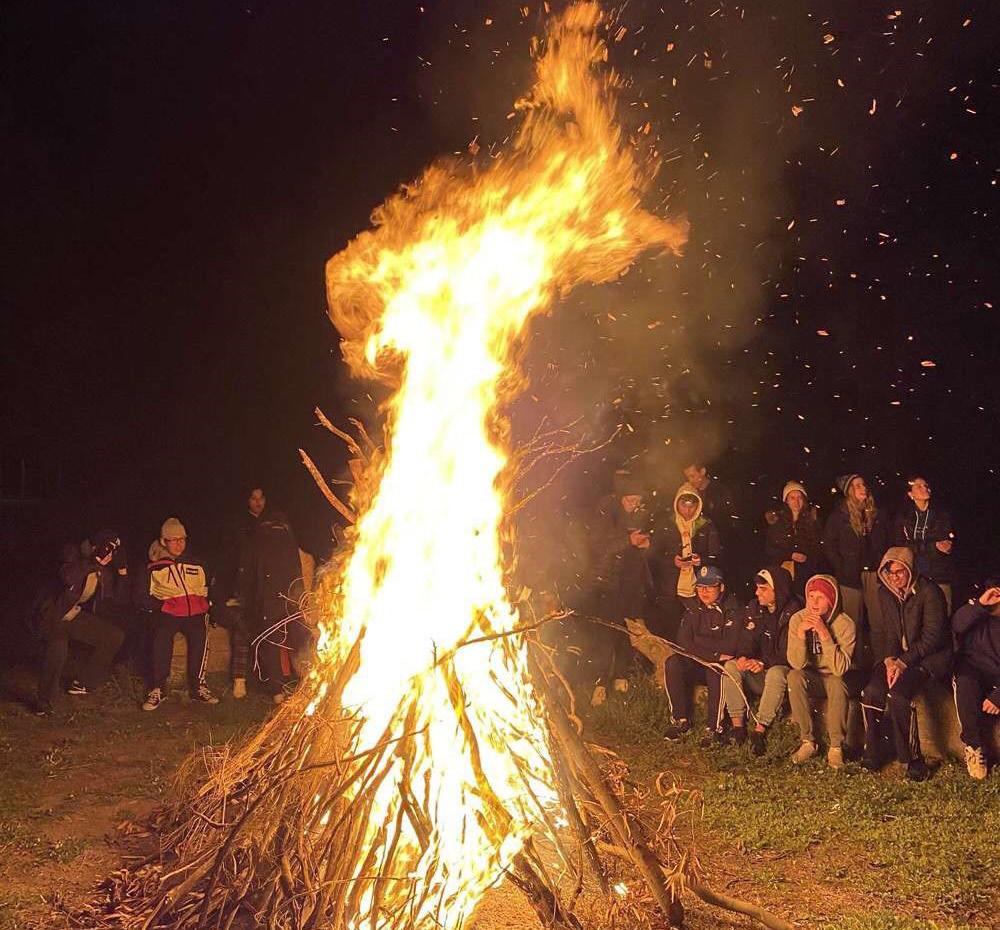
4 minute read
CHRISTIAN LIVING
Through the core topics students will focus on: • the nature and structure of business • sources of finance • forms of ownership • legal responsibilities and requirements • financial literacy • global, local and digital perspectives • collaboration and communication with relevant stakeholders Assessment: • Business Skills (40%) eg. Social media marketing campaign, business investigation infographic, website creation and report. • Business Model (30%) • Business Plan and Pitch (30%)
meaning and purpose of life, issues of right and wrong, suffering, and what it means to be human. Students will be able to distinguish between the two worldviews of theism and atheism and consider the impact of these on society.
Advertisement
Year 10 curriculum encourages students to develop positive attitudes to their learning and to the beliefs and values of others. The assessment tasks focus on four attitudes which are essential for good learning in Christian Living: self-awareness, respect for all, open-mindedness and appreciation and wonder.
Assessment Throughout the year students are assessed on the development of their knowledge and understanding of religious belief; and skills of investigation, communication, analysis and reflection.
CHRISTIAN LIVING Learning Leader: Mrs Alison Slater
Year 10 Christian Living
Length of Course: Full Year (compulsory)
In Year 10, Christian Living follows the Christian Studies Curriculum Framework.
Content: • World Religions • Refugees • Evil and Suffering • Spirituality
Students will develop an understanding of the significance of beliefs about God for Australian young people. The curriculum aims to develop students’ knowledge and understanding of Christianity and other world religions. Students are encouraged to learn from different beliefs, values and traditions, while exploring their own beliefs and questions of meaning.
Students will identify and analyse a social justice issue (refugees). They will be able to refer to what the Bible teaches about responding to the poor and oppressed. The Christian Living curriculum provokes challenging questions about the ultimate
CHRISTIAN LIVING SUBJECTS - YEAR 10 TO YEAR 12
Stage 1 Christian Living
Prerequisites: Nil
Length of Course: Full year (compulsory) (10 credits)
Content: Term 1 - Peer Support: The Peer Support program involves all Year 11 students. The aim of this program is for the Year 11 students to develop positive and respectful relationships with the Year 7 students in their Village. The assessment component of this course includes the planning and delivery of practical teaching sessions. Throughout the term students are required to compile a Folio of planning, input and implementation of activities. Students will provide evidence of their understanding of how the values of Love, Courage, Forgiveness and Hope are linked to Scripture and the Christian teachings of our school.
Term 2 – Term 4 Students will opt to study one of the units below during Terms 2- 4. They will be assessed in this area only.
Service Learning Students investigate the various types of service, look at Christian service as compared to how other religions view service and most importantly, take part in a longer term service activity of their choice. There is also the opportunity to research and present on a topical issue in this area. Social Justice The aim of this course is to increase students’ understanding of the nature and significance of religion and spirituality and explore their relevance in society. Students consider the religious basis of a contemporary ethical or social justice issue. This study provides an opportunity for students to develop their skills in discussing, evaluating, and responding to an ethical or social justice issue from a religious perspective. Students consider Religious and Spiritual traditions as well as how social justice issues are discussed in the Scriptures. Big Questions The aim of this unit is fundamentally about asking and answering questions concerning the world, the universe, and God. Students will develop the necessary skills and attitudes towards their learning that will allow them to ask and seek answers to probing questions based on logical and analytical thinking, as well as focus on creativity and problem solving. The second part of the unit has a focus on Christian Ethics. Key areas of study: Cosmological argument, Teleological argument, Existence of suffering, Ethics.
Spirituality This unit engages students in the investigation and practice of developing and deepening their personal spirituality. Spirituality is approached both broadly as the human exploration of personal meaning and transcendence as well as more specifically in the Christian tradition of the human experience of God through the Holy Spirit. Attention is given to assist students towards developing spiritual practices and supportive contexts that can sustain their ongoing spiritual journey and to build a healthy identity. Students are also given the opportunity to explore the benefits of Spiritual Mentoring, Forgiveness, Grace and mapping their own Spiritual journey. A range of spiritual issues are explored such as the Gifts of the Spirit, Spiritual Armour, Discernment, Spiritual Battles, the spiritual impact of Music, Art and the Media.
Assessment: Assessment in Stage 1 Religion Studies is comprised of three tasks. These will take the form of a Practical Activity, an Issues Investigation and a Reflection. In these tasks students will be assessed on their knowledge and understanding of religion, communication and investigation skills, and analysis and personal reflection.
Christian Living MAX
Prerequisites: Nil
Length of Course: 1 semester (compulsory)
Content: MAX is a Christian course undertaken by Year 12 students based on the Curriculum of Giving. It covers a range of topics relevant to young adults with a Christian focus. The core topics covered during the semester are: Know Thyself, Giving to Others, Giving to Communities, and Giving to Life. There are no formal assessment tasks for this subject; however, students are required to complete a series of journal tasks. In Term 2 all students take part in a Service afternoon as part of the topic ‘Giving to Communities’.
Assessment: Student are required to respond to the sessions in their journals.











